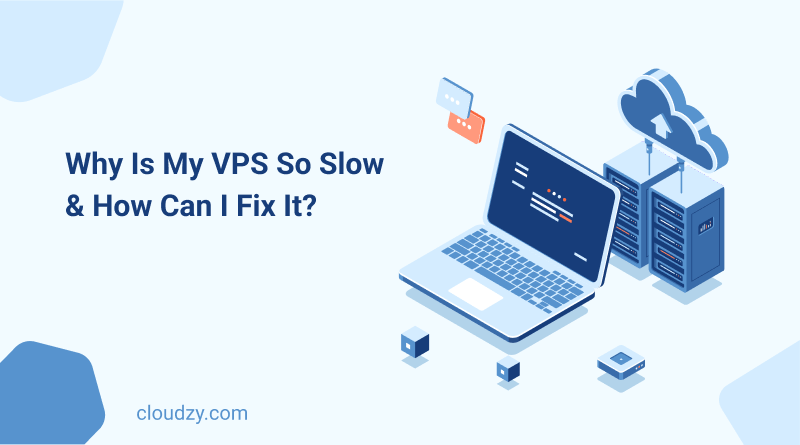why is my vps slow

Are you experiencing frustratingly slow performance on your Virtual Private Server (VPS)? It's time to delve into the reasons behind this common issue and explore effective solutions. Understanding the factors that contribute to a slow VPS can empower you to optimize its performance and enhance your online experience. In this comprehensive article, we will uncover the culprits responsible for a sluggish VPS and provide you with actionable tips to overcome them.
Before we dive into the details, let's briefly explain what a VPS is. A Virtual Private Server is a virtualized server that emulates a dedicated server within a shared hosting environment. It offers greater control, security, and scalability compared to traditional shared hosting plans. However, like any technology, VPSs can encounter performance issues, leading to slow response times and reduced efficiency.
1. Insufficient Resources
One of the primary reasons for a slow VPS is insufficient resources. When the allocated resources such as RAM, CPU, or storage are inadequate for the demands of your website or applications, performance degradation occurs. This section will outline the impact of resource limitations and suggest remedies to optimize resource allocation.
2. High Server Load
A high server load can significantly impact VPS performance. When the server is overloaded with resource-intensive tasks or excessive traffic, it struggles to handle simultaneous requests, resulting in slow response times. In this section, we will explore the causes of high server load and strategies to alleviate it.
3. Inefficient Code or Scripts
The efficiency of your website's code and scripts plays a crucial role in VPS performance. Poorly optimized code, unnecessary plugins, or outdated scripts can consume excessive resources and slow down your VPS. This section will shed light on identifying and rectifying inefficient code or scripts to enhance performance.
4. Insufficient Caching
Inefficient caching mechanisms can contribute to a slow VPS. Caching helps store frequently accessed data to reduce the server's workload. Without proper caching strategies, your VPS may be forced to repeatedly generate content, leading to performance bottlenecks. In this section, we will discuss various caching techniques to improve your VPS speed.
5. Network Latency and Connectivity Issues
Network latency and connectivity issues can also contribute to a slow VPS. Factors such as distance from the server, network congestion, or problematic network configurations can result in delayed data transmission. In this section, we will explore ways to diagnose and resolve network-related issues affecting VPS performance.
6. Inadequate Security Measures
Poorly implemented security measures can impact VPS performance. Constant security threats and attacks can hinder the server's processing capabilities, leading to a slow VPS. This section will highlight the importance of robust security measures and provide insights into securing your VPS without compromising performance.
7. Outdated Software or Operating System
Using outdated software or an obsolete operating system can hamper VPS performance. Newer versions often come with performance improvements, bug fixes, and security enhancements. This section will discuss the significance of keeping your software and operating system up to date to ensure optimal VPS performance.
8. Inadequate Monitoring and Tuning
Insufficient monitoring and tuning of your VPS can hinder its performance. Without regular monitoring and fine-tuning, you may miss potential performance bottlenecks or fail to optimize your VPS to suit your specific needs. This section will emphasize the importance of proactive monitoring and tuning for optimal VPS performance.
9. Lack of Bandwidth
Inadequate bandwidth can lead to a slow VPS, especially when your website experiences high traffic or data-intensive activities. This section will discuss the impact of bandwidth limitations and provide recommendations to ensure sufficient bandwidth allocation for your VPS.
10. Hardware Limitations
In some cases, the hardware underlying your VPS may have limitations that affect its performance. Insufficient processing power, disk read/write speed, or network capacity can result in a slow VPS. This section will explore the importance of choosing reliable hosting providers and hardware specifications that meet your requirements.
In conclusion, a slow VPS can be attributed to various factors ranging from resource limitations and inefficient code to network issues and hardware constraints. By addressing these causes, you can significantly enhance your VPS performance and provide visitors with a seamless online experience. Remember to regularly monitor, optimize, and stay updated with the latest technologies to keep your VPS running smoothly. Implementing the solutions provided in this article will set you on the path to a faster and more efficient VPS.




